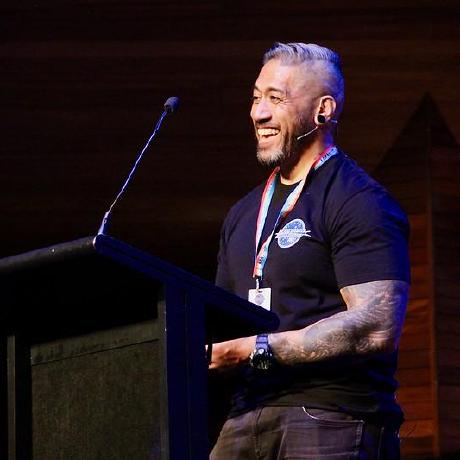I've been thinking about the idea behind the saying "it's not what you know, its who you know" as I've gone about various tasks over the last couple of weeks.
People usually say this when they're looking for work, and it's either they're not getting any traction because they don't know anyone, or they're getting their foot in the door because they know someone.
I have to say this has been my experience as well.
But, I think this minimizes the "what you know" part because usually the thing that I know - a skill, an experience, a certification - has been the thing that's put me in the conversation, or made me relevant to any discussion around work that needs doing in the first place.
What do I mean by this?
Let's take at how I got into contracting...
Employee to Contractor
I used to work as a systems integration engineer at Vodafone. I was part of a team of highly skilled engineers (I was definitely the entry-level guy of the team) and we would battle some gnarly technical problems, but also would have to navigate some difficult project environments and situations i.e. people's unhelpful attitudes, managers under stress, cross-team dysfunction and working with a range of skills and experiences.
I spent many late nights trying to learn and up-skill on various technologies just to deliver the few tasks assigned to me. The team had a huge workload and we were all quite independent of each other because we were all on different projects. I would always try to do the absolute most I could before reaching out to the team for help.
Because of the way I worked, learning as much as I could, not taking any feedback from the team personally but as an opportunity to learn and improve (easier said than done as tech is quite a game of "smarts" and nobody likes to be seen as dumb), I was able to show and prove my value to the team.
"Oh you need someone to build that thing? I got it"
"You need someone to spend time figuring this thing over here out? Cool, let me check it out".
When I quit Vodafone after 4 years to take a break, a colleague who I had worked with at Vodafone contacted me to take over a contract he was leaving.
Using my Network
Firstly, he knew I wanted to get into contracting and we had a good rapport over the years, but secondly and also importantly, he knew I could do the work. In contracting if you're going to recommend someone, you sort of stake your reputation on this referral - so if you like the company (and he did), you want to set them up with someone who's going to leave a good impression.
So I know some stuff, and in the course of work I end up knowing some people. And those people set me up for contracting and referred me to a few more contracts after that one.
This "who you know" business reminded me of what I had read in Malcolm Gladwell's book "Outliers". The book details some of the most extraordinary people of our time like Bill Gates and the Beatles and how they got to where they did. It talks about the 10,000 hours rule of focused practice as something, but also really emphasizes the luck and access these people had to other people in order to help them along the way.
I was inspired recently by an interview on the IndieHackers podcast with Nathan Barry, founder and CEO of ConvertKit. He talked of working on a side project, and blogging consistently for 2 years documenting his journey of going from zero to $600,000/monthly revenue and voila he's left his full-time job and making an extraordinary amount of money to fund his passion and his lifestyle.
It was a really good interview.
People are already ahead
But going to his blog and reading the posts he had documented about building his product and company painted a somewhat different picture of the people and things he had access to while he was bootstrapping himself to success. He already had successful products launched and had access to several successful entrepreneurs and business people who would readily give him advice and help bounce ideas around.
And that's fine. I think that's everyone's story once you get past the elevator pitch and get down to the nitty gritty of their experience, the finer details can shape not only the track they ran, but the perception from the outside to how they got from A to B.
And that's not to downplay or minimize anyone's hard work and sacrifices on their road to success but I think about this on two fronts
- Get your network working for you and vice versa. The people around you determine the resources (ideas, experiences, advice etc) available to you (and vice versa). So talk to them; learn how you can help them and how they can help you etc.
- Don't get too enamored in someone else's story that you discount the details that made their story specific to them i.e. not so difficult that you couldn't do it yourself but also not so easy that you could do it as well. That is, don't build them up in your head where you think they achieved the "impossible" that is beyond you - it's not "if" you can do it, but "how".
In summary (haha - yes, this was a long one), learn a "what" well enough to put you in the conversation of the kind of people who can help "put you on".
